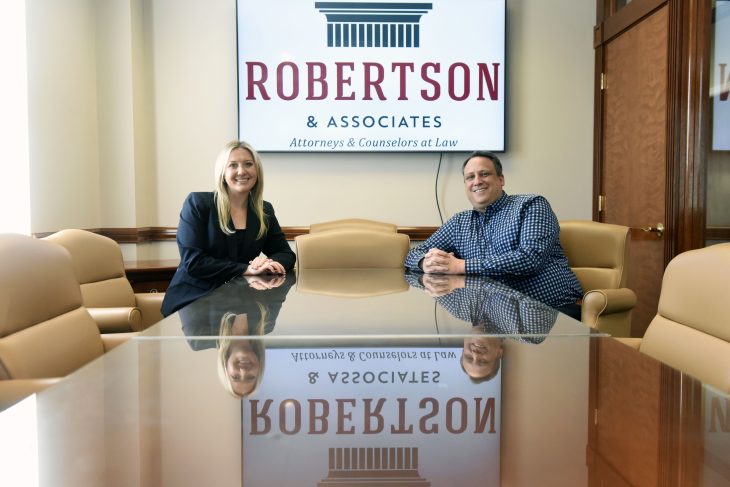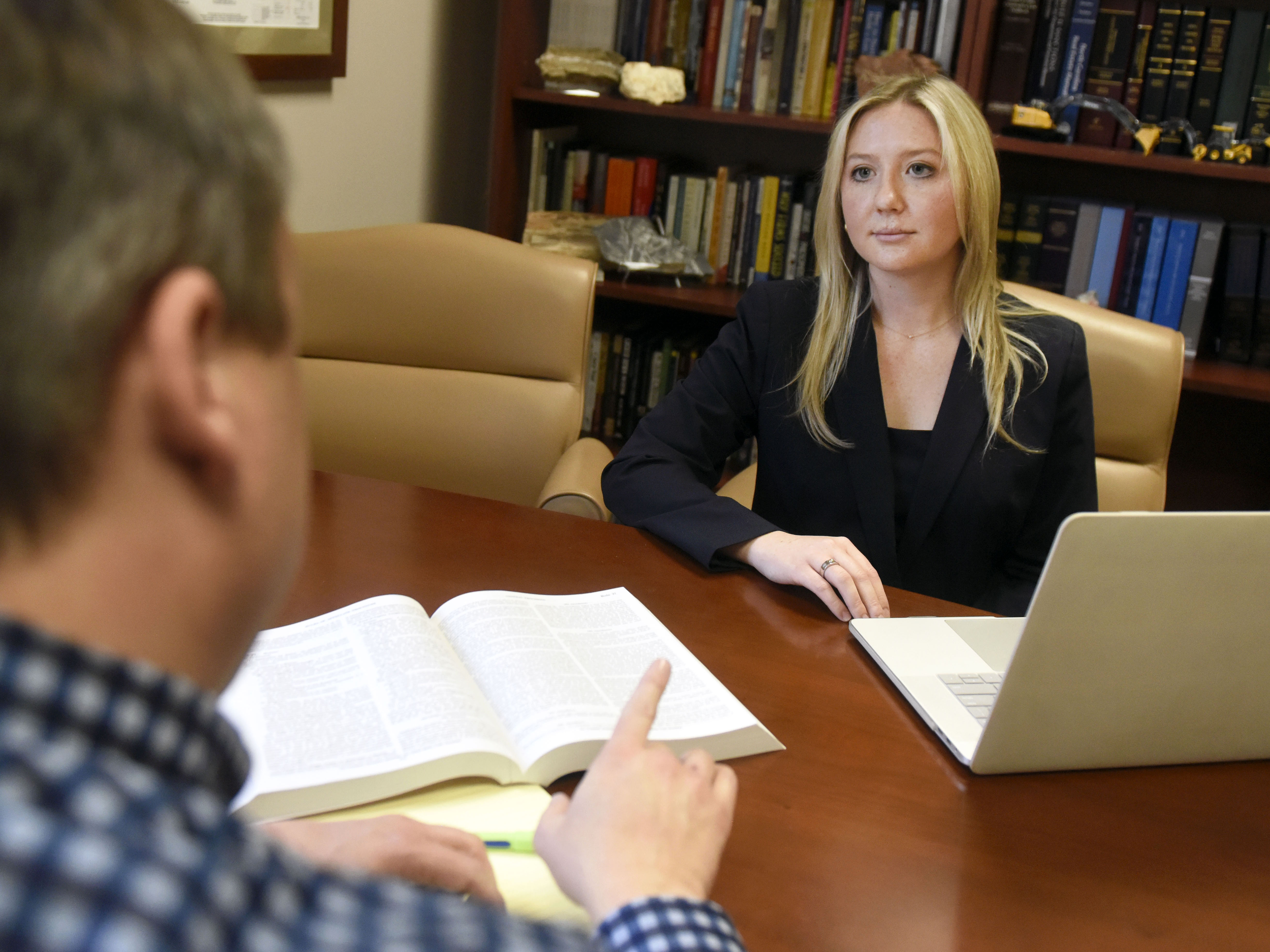Working with knowledgeable attorneys at the boutique Charlotte law firm afforded Sydney Rimmer L’24 an opportunity to sharpen her skills in drafting complaints, demand letters, memos, settlement agreements, and more - all while helping clients whose stories inspired her.
Sydney Rimmer L’24 thought for years that she’d be a nurse. Her best friends in high school outside of Harrisburg, Pennsylvania, had plans for similar careers. Why shouldn’t she?
It took one day of job shadowing to realize a job in nursing wasn’t a good fit. “It was the longest day of my life,” Rimmer jokes. But communicating with people? Finding creative solutions to their problems? That felt right.
Rimmer was soon attending Bloomsburg University and describes her communication studies and political science majors as a “perfect union” to prepare for law school. A future legal career would also allow Rimmer to advocate for others on both their best and worst days.
Elon University had been on her shortlist for college. It was her top choice for law school. Two years later, Rimmer is on the cusp of joining the legal profession.
The former field hockey player recently answered questions about working under the guidance of attorney Lee Robertson during her Elon Law winter residency at Robertson & Associates, a boutique law firm in the Charlotte region specializing in business law, construction, and commercial real estate.
This is the first of three in a series of conversations with Elon Law students in the Class of 2024 completing their residencies-in-practice in recent months.
**
Share how you were inspired to pursue a career in the law.
While my innate character traits have always provided me with the inspiration and confidence that I could be of value in the legal field, my desire to pursue a career in the law was solidified during my undergraduate journey when I realized that law school would be the perfect union between my two majors.
Additionally, the rewarding nature of a career in the legal field captivated me, as I could advocate for others and aid them in navigating both their successes and struggles alike, whether they need assistance acquiring a patent or defending against an alleged criminal conviction.
How did you identify your residency at Robertson & Associates as an option?
I previously interned in a judge’s chambers and had a wonderful experience observing attorneys’ court appearances. I wanted to understand the intricacies of the preparation behind their appearances, which is why I sought work in a law firm for my residency, and I was inspired to learn about this practice area because my father is a mechanical contractor who owns and operates a business. I felt as though I would be assisting a familiar clientele with matters that I could rationalize.
Describe your daily responsibilities at the office.
I’ve been given a multitude of assignments and delegated tasks by several attorneys in the firm such as drafting complaints, demand letters, memos, liens, motions, orders, settlement agreements, discovery, research, proofing, and more. Once completed, I reviewed my work with the assigning attorney and discussed necessary changes. I also observed client intake meetings, hearings, and mediation. It was a wonderful feeling to know that a majority of my work product was being filed with the court or sent to a client. I learned so much from attorneys who took time to explain new assignments and never hesitated to answer any questions.

Based on your experience, what’s surprised you the most about the practice of law?
One of the most surprising elements about the practice of law has been how emotionally taxing it can be. I always consider myself to have thick skin, so I was personally surprised at just how much certain cases affect me. The shift from law school to actual practice was jarring because I realized that the cases I had been reading were not just stories – they were real people. I had a period where I struggled to leave work at work, because I knew these matters were affecting my clients.
Which of your personal traits helped prepare you for the responsibilities and professional opportunities you’ve discovered in this area of law?
My heightened ability to communicate both written and orally has enriched my interactions with clients and legal professionals. Additionally, I believe my hard work, persistence, and the value I place in receiving feedback helped me produce high-quality work while increasing my desire to learn and improve.
In what ways, if any, has your residency experience shaped your plans for after graduation?
My residency emphasized the importance of a good office culture. Everyone made me feel welcomed from the moment I stepped in the office. The comradery I encountered facilitated the best work environment I could ask for. Robertson & Associates set the bar high for the type of office culture I’ll seek in the future. A friendly and collaborative work environment will be non-negotiable.
Share one “quick tip” for current and prospective students as they prepare for their own Elon Law residencies or, more broadly, law school in general.
Become comfortable with being uncomfortable. Nearly every one of my experiences in law school has been unfamiliar, but those are the opportunities from which I learned the most. I quickly realized that sitting passively through law school to avoid falling outside of my comfort zone would be a grave disservice to myself.
Both success and failure garner growth, so be a sponge and soak in everything you can.
Become comfortable with being uncomfortable. Nearly every one of my experiences in law school has been unfamiliar, but those are the opportunities from which I learned the most.
– Sydney Rimmer L’24
About the Residency-in-Practice Program
Elon Law’s highly experiential 2.5-year curriculum requires every student to complete a full-time, course-connected residency-in-practice during their second year of study. Through faculty-directed residencies, students cultivate essential skills, values and judgment to help them excel as attorneys and deepen their understanding of various practice areas, while enabling attorneys to convey wisdom about the legal profession.
Students work 32-36 hours a week over a 10-week trimester with a judge or attorney supervisor and a faculty member to create and implement a learning plan that develops an increased proficiency in professional legal skills and in an area of law practice.



